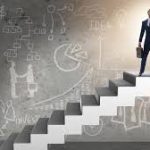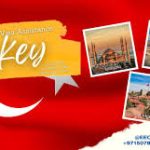In today’s fast-paced world, lifelong learning has become a cornerstone for personal and professional growth. It extends beyond formal education, encompassing self-directed efforts to acquire new knowledge, skills, and experiences. Unlike traditional learning confined to classrooms, lifelong learning promotes a mindset that embraces curiosity and adaptability. Whether it’s mastering a new language, acquiring technical skills, or understanding diverse cultures, the ability to continuously learn shapes how we navigate challenges and opportunities in life.
The benefits are vast: improved cognitive health, heightened adaptability in careers, and enriched personal fulfillment. As industries evolve due to advancements like artificial intelligence and globalization, individuals who invest in continuous education stand out as resilient and resourceful contributors to society.
Bridging Education and Self-Development
The link between education and self-development is undeniable. While education provides the foundational framework for structured knowledge, self-development focuses on applying that knowledge to achieve personal goals and ambitions. For example, enrolling in a professional development course can lead to enhanced workplace performance, but it is the individual’s self-discipline and motivation that ensure its successful application.
Self-development encourages introspection and goal-setting. By identifying areas for improvement, individuals can target their learning efforts effectively. A blend of traditional education and modern tools such as online courses or mentorship programs enables a tailored approach to self-improvement, fostering both confidence and capability in learners.
Modern Tools Enhancing Learning Opportunities
Technology has revolutionized access to education and self-development resources, making them more inclusive and versatile than ever before. Platforms like Coursera, Udemy, and Khan Academy offer courses in a wide array of fields, catering to different learning styles and schedules. Similarly, apps focused on skill development, such as Duolingo for languages or LinkedIn Learning for professional skills, provide accessible and convenient options.
In addition to digital platforms, community initiatives and collaborative learning spaces promote interpersonal growth. Peer learning, mentorship, and networking amplify the effects of formal and informal education by fostering practical insights and shared experiences. These tools make lifelong learning achievable for people across diverse backgrounds, turning constraints like time and location into manageable hurdles.
Cultivating a Growth Mindset
The foundation of effective lifelong learning lies in cultivating a growth mindset. Coined by psychologist Carol Dweck, a growth mindset emphasizes the belief that abilities can be developed through effort and perseverance. This outlook contrasts with a fixed mindset, where individuals perceive their potential as limited.
A growth mindset encourages embracing failures as learning opportunities and viewing challenges as stepping stones for progress. By fostering this perspective, individuals unlock their full potential, leveraging both structured education and personal endeavors for comprehensive development.
Conclusion
Lifelong learning is not merely an educational pursuit but a way of life. Its impact on personal and professional realms underscores the importance of adaptability, resilience, and continuous improvement. Through the integration of modern tools, structured education, and self-driven efforts, anyone can unlock their potential and thrive in an ever-changing world. The journey of lifelong learning ensures that knowledge acquisition remains dynamic and fulfilling, empowering individuals to achieve their aspirations and contribute meaningfully to society.



